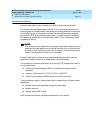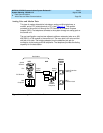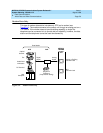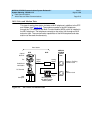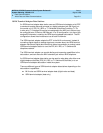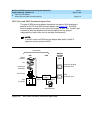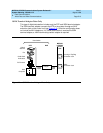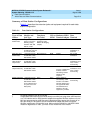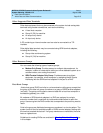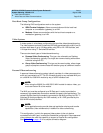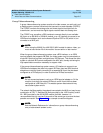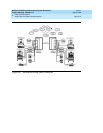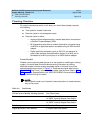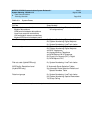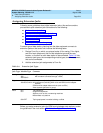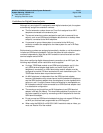
MERLIN LEGENDCommunications System Release 6.1
System Planning
555-661-112
Issue 1
August 1998
Data Communications
Page 5-15About Data and Video Communications
5
Other Supported Data Terminals 5
Other data equipment that may be connected to the system include analog data
terminals using modem connections, such as the following:
■ A local host computer
■ Group III (G3) fax machine
■ An output-only device
■ An input-only device
A PC containing an internal modem card can also be connected to a T/R
interface.
Other digital data terminals may be connected using ISDN terminal adapters,
including the following:
■ Group video conferencing system
■ Group IV (G4) fax machine
Other Resource Groups 5
You can create the following types of special groups:
■ Modem-Only Group. Provides access to multiport data equipment, for
example, a caller at a data station calling an online database system at an
outside number, over analog lines/trunks.
■ ISDN Terminal Adapter-Only Group. Provides access to multiport
equipment, for example, a host computer, by assigning the MLX ports
interfacing with the ISDN terminal adapters in the pool to a DHG.
Data Hunt Groups 5
A data hunt group (DHG) is similar to a voice-extension calling group, except that
the group in this case is a group of modems or a group of ISDN terminal adapters
(not both). The group can be used to communicate with a local host computer or
workstation (gateway) on a LAN.
All modems or ISDN terminal adapters in a DHG are assigned to a single
extension number that is used both by inside and outside callers to reach the
group. Users are given the DHG number that corresponds to the pool they need to
reach.
Calls to the group are distributed among group members in a circular pattern. The
system hunts for the first available modem or ISDN terminal adapter, starting with
the one that received the last call. If all group members are unavailable, the caller
hears a ringback tone.
Guidelines for creating DHGs are contained in “Creating Data Hunt Groups,” later
in this chapter.



